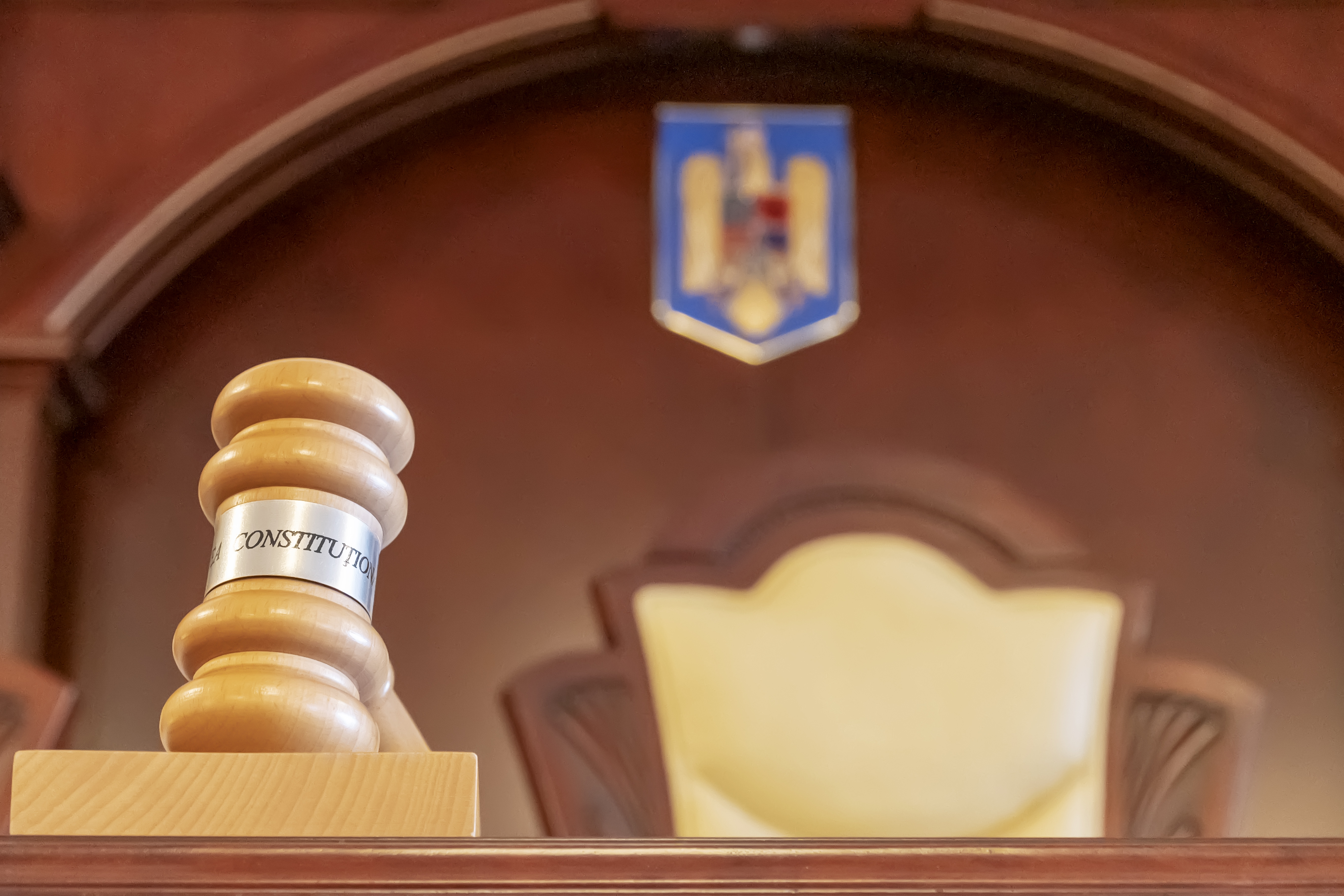The Constitutional Court is the sole authority of constitutional jurisdiction in Romania, and it shall be independent of any other public authority.
At the level of provisions enshrined by the Basic Law, regulations on the Constitutional Court are to be found under the six Articles in Title V (Articles 142-147, in the current numbering given after the revision of the Constitution), which are further complemented by Law No. 47/1992 on the Organization and Operation of the Constitutional Court, republished.
To fulfil its functions as the “guarantor for the supremacy of the Constitution“, the Court discharges the following powers prescribed by Article 146 of the Basic Law:
a) It adjudicates on the constitutionality of laws, before promulgation, upon reference made by the Parliament of Romania, by one of the President of either Chamber of Parliament, by the Government, by the High Court of Cassation and Justice, by the Advocate of the People (Ombudsman), by a number of at least fifty Deputies or at least twenty-five Senators, as well as, ex officio, on the initiative to revise the Constitution;
b) It adjudicates on the constitutionality of treaties or other international agreements, upon notification by one of the President of the two Chamber, by a number of at least fifty Deputies or at least twenty-five Senators;
c) It adjudicates on the constitutionality of the Standing Orders of the Parliament, upon notification, by the President of either Chamber, by a parliamentary group or by a number of at least fifty Deputies or at least twenty-five Senators;
d) It decides on objections as to the unconstitutionality of laws and ordinances, brought up before courts of law or of commercial arbitration; the objection of unconstitutionality may also be brought up by the Advocate of the People;
e) It resolves legal disputes of a constitutional nature between public authorities, at the request of the President of Romania, one of the Presidents of the two Chambers, the Prime Minister, or of the President of the Superior Council of Magistracy.
f) It guards the observance of the procedure for the election of the President of Romania and confirms the ballot returns;
g) It ascertains the circumstances which justify the interim in the exercise of office of President of Romania, and reports its findings to Parliament and the Government;
h) It gives the advisory opinion on the proposal to suspend the President of Romania from office;
i) It guards the observance of the procedure for the organization and holding of a referendum, and confirms its returns;
j) It checks on compliance with the conditions for the exercise of a legislative initiative by citizens;
k) It decides on challenges dealing with the constitutionality of a political party;
l) It carries out also other powers as provided by the Court’s organic law.
According to the law, the Constitutional Court competence cannot be contested by any public authority, the Court alone being entitled to decide thereupon.




